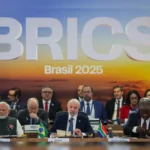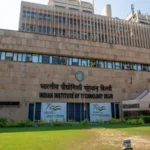
- Rahul Gandhi sends protest letter to Speaker Om Birla over expunction of his speech.
- Claims the expunged remarks reflect ground reality and should be restored.
- Criticizes selective expunction and emphasizes his right to freedom of speech.
Why Is Rahul Gandhi Protesting the Expunction of His Speech?
On Tuesday, Leader of the Opposition Rahul Gandhi sent a protest letter to Speaker Om Birla, expressing his “shock” at the decision to expunge portions of his speech delivered in the Lok Sabha on Monday. He argued that the expunged remarks, which criticized Prime Minister Modi, the BJP, and referenced Adani, Ambani, and the Agnipath scheme, reflect the ground reality and should be part of the parliamentary record.
Gandhi contended that the Speaker’s authority to expunge remarks is confined to specific “words” as outlined in Rule 380 of the rules of procedure. He insisted that the expunged sections of his speech do not fall under this rule. “What I sought to convey in the House is ground reality, the factual position,” he wrote. He highlighted that every member of the House represents the collective voice of the people and has the freedom of speech as enshrined in Article 105(1) of the Constitution.
What Are Gandhi’s Arguments?
Rahul Gandhi emphasized that his speech was an exercise of his constitutional right to free speech. He argued that removing his remarks from the records undermines the principles of parliamentary democracy. “Taking off from records my considered remarks goes against the very tenets of parliamentary democracy,” he stated.
Gandhi also pointed out the disparity in the handling of speeches, noting that BJP MP Anurag Thakur’s speech contained numerous allegations, yet only one word was expunged. He described this as “selective expunction” that defies logic and fairness.
What Does This Mean for Parliamentary Democracy?
The protest highlights a significant debate about the limits of parliamentary speech and the role of the Speaker in maintaining decorum. Gandhi’s insistence on restoring his remarks underscores the importance of freedom of speech in the parliamentary process. The controversy also reflects broader tensions between the opposition and the ruling party over what constitutes acceptable parliamentary discourse.
As the issue unfolds, it will be crucial to see how the Speaker responds to Gandhi’s demands and whether the expunged remarks will be reinstated. This incident may also prompt a re-examination of the rules governing parliamentary speech and the power of the Speaker to expunge remarks.




































Leave a Reply